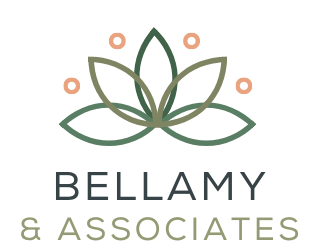Are Your Words Perpetuating Stigma?
Our words have power. The things we say carry with them the potential to affect those around us in big and small ways.
Words can carry love and comfort, joy, and peace; however, they can also carry hurt and perpetuate stigma. Stigmatizing language can be overtly recognizable but, more commonly, it is covert and subtle.
What can we do to minimize our own stigmatizing language?
Becoming aware and conscious of the language we use is a crucial first step to be able to identify the ways in which our language impacts those around us. Take some time to reflect on words or phrases in your vocabulary that may be stigmatizing to others.
Words to Eliminate
Words like “psycho,” “crazy,” “nut job,” “maniac,” “addict,” “junkie,” “crackhead,” “coke whore,” “alcoholic,” “schizo,” among others can be very stigmatizing and harmful to people around us and to people who may struggle with addiction, mental health, eating disorders, or other challenges.
Some other phrases that can be harmful when used inappropriately include, “that triggered me” or “I’m so OCD” or “She’s so Bipolar” or “I have PTSD from that,” unless these phrases are used to describe legitimate conditions/experiences. For example, avoid using “PTSD” or “OCD” to describe your experience unless that is actually a diagnosis you experience.
What to Say Instead
Often when we use these words in our day-to-day language the emotion or feeling we are attempting to convey is different from the word we are using to describe it.
Fortunately, there are alternative words we can use that are both more accurate and not stigmatizing. This is a great opportunity to expand your emotional vocabulary.
For instance, if you have an emotional reaction to something, instead of saying “that was so triggering,” take a moment to assess how you are feeling and identify your emotional experience. Perhaps what you are feeling is not the recollection of a traumatic experience but rather disbelief, anger, or annoyance. An example might be saying “I’m so frustrated that I got lost on my way here” rather than “Oh my gosh, that drive was so triggering.”
Switching vocabulary we have used in the past like “the weather is so Bipolar” for a more accurate emotional or other identifier can be a challenging adjustment. This may be a good opportunity to reflect on times when you frequently use stigmatizing phrases and come up with some alternatives to keep in your back pocket.
Identifying our emotional experiences can be difficult to do, especially if we don’t have a vocabulary that is nuanced enough to match our emotions. Consider printing a feelings wheel to help identify some new, more specific emotions.
Managing Discomfort & Remaining Accountable
On the journey to reducing and eliminating stigmatizing from our vocabulary, we may make mistakes and slip up. Once we recognize the effect and power of our language, moments in which we make mistakes can be uncomfortable. It’s important to remember that we are human, we will make mistakes along the way.
The crucial part is not in whether or not we fail but rather how we respond when we do mess up. We must hold ourselves accountable. This may sound daunting but it can be as simple as verbally acknowledging that we made a mistake and then replacing what we said with something more accurate and non-stigmatizing.
A useful method for holding ourselves accountable is articulating to people around us that we are trying to change our vocabulary. That could mean telling a roommate, partner, family member, or friend that you’re trying to stop using the word “psycho” or “crazy.”
In communicating our goals to someone else we not only build in an extra check to hold us accountable, but we also create a safe, constructive space to be able to hold ourselves accountable and work on changing our habits.
Person-First Language
So how do we talk with and about individuals and communities experiencing mental health concerns, addiction, etc without perpetuating stigma? A good rule of thumb is to use person-first language.
For example instead of saying “druggie” or “alcoholic" consider saying “a person who uses drugs” or “someone with an alcohol use disorder.” Using person-first language serves to emphasize and prioritize the humanity in each and every person.
Person-first language recognizes that first and foremost this person is just that, a person! We all experience different things in our life, good and bad. Those experiences don’t define us, so we should not use them to define other people. It is also a good policy to avoid labeling someone if they haven’t identified labels they find personally valuable. For example, saying “someone who uses opioids” versus “someone with an opioid addiction” if you are unsure of how they identify or what diagnosis they do or don’t have.
Next Steps
We have to remember that our language carries power. We have the ability to choose how we communicate and subsequently, how we interact with and impact others through our language.
To summarize and share some closing tips:
Be aware of the words and phrases you and/or those around you use that are potentially harmful and stigmatizing to others.
Identify what you really mean to say and whether or not your initial use of language was appropriate.
When you make a mistake, hold yourself accountable, respond, and move forward.
If those around you are using stigmatizing language, try to explain the impact it can have and offer alternatives. Call others in by sharing your own experience with changing your stigmatizing language and share useful resources.
Find strategies that will make shifting your vocabulary easier, like letting others know about your goals to remove certain words from your vocabulary.
Try incorporating person-first language and avoid labeling others.
Take some time to reflect on the ways your language may be impacting others and try to think about the way other people’s language has affected you both positively and negatively.

